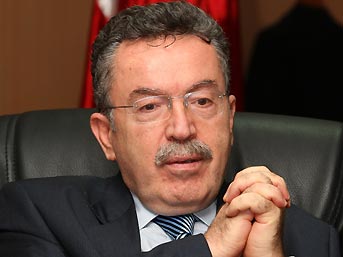A surge in violence has dashed plans for a negotiated end to the 27-year-old Kurdistan Workers’ Party (Partiya Karkerên Kurdistan, PKK) insurgency. Since Turkey’s elections in mid-June, clashes have killed more than 110 people, country-wide ethnic friction has hardened opinion, and the government has started bombing PKK bases and talking about an imminent ground offensive in northern Iraq. The PKK must immediately end its new wave of terrorist and insurgent attacks, and the Turkish authorities must control the escalation with the aim to halt all violence. A hot war and militaristic tactics did not solve the Kurdish problem in the 1990s and will not now. A solution can only lie in advancing the constitutional, language and legal reforms of the past decade that have gone part way to giving Turkish Kurds equal rights. Given the recent violence, returning to a positive dynamic requires a substantial strategic leap of imagination from both sides. Neither should allow itself to be swept away by armed conflict that has already killed more than 30,000 since 1984.
The Turkish Kurd nationalist movement must firmly commit to a legal, non-violent struggle within Turkey, and its elected representatives must take up their seats in parliament, the only place to shape the country-wide reforms that can give Turkish Kurds long-denied universal rights. The Turkish authorities must implement radical judicial, social and political measures that persuade all Turkish Kurds they are fully respected citizens. They should reach out to non-violent nationalists and not abandon long-standing negotiations on disarmament with the PKK, including its jailed leader, Abdullah Öcalan. Although justified in acting resolutely to block the PKK’s recent attacks, the authorities must avoid falling into the trap of tit-for-tat escalation. Many big Turkish strikes against PKK bases in northern Iraq solved nothing in the past. As the more powerful party, the authorities should instead take the lead in creating opportunities to end the fighting.
For all its gaps, flaws, and unravelling since late 2009, the promises of the Democratic Opening developed by the ruling Justice and Development Party (Adalet ve Kalkınma Partisi, AKP) remain the best way forward. That initiative counts as Turkey’s most credible attempt to heal the open wounds of conflict between the state and its estimated 15-20 per cent Kurdish-speaking population. This report details more than a dozen concrete steps it has involved so far, including broadening access to Kurdish-language television, legislating the right to make political speeches in Kurdish and overseeing an end to almost all torture in Turkish jails. Others have led to a new sense of freedom in Kurdish cities, high-level talks with Öcalan and a greater readiness by mainstream commentators to discuss previously forbidden ideas, like a change in Öcalan’s jail conditions after a full peace deal or a federal disposition for the Kurdish-majority south east.
The outline of a deal to end the insurgency that was also under negotiation – an end to the fighting, major legal reforms, an amnesty and Turkish Kurd acceptance to work within the legal Turkish system – remains the best long-term outcome for both sides. But while making these reforms, the authorities have arrested hundreds of Turkish Kurd nationalists, including many elected municipal officials and other nationalist party members. More than 3,000 nationalist activists are behind bars, many punished as “terrorists” for the non-violent expression of opinions under laws for which the AKP is responsible. On the other hand, what should have been the centrepiece of the Democratic Opening – a ground-breaking PKK amnesty in October 2009 – foundered when Turkish Kurd nationalists exploited it for propaganda purposes.
AKP’s relatively open-minded approach has won it half the Turkish Kurds’ votes, but the government has to go further and fully engage the other half and its representatives, who are the decision-makers in the Kurdish nationalist movement. It should offer educational options that respect Kurdish languages and culture and rewrite laws that unfairly jail nationalists as terrorists. It must also ensure its policies are fully implemented by all military, judicial and state bodies. Otherwise, as developments since the June 2011 elections show, the nationalists will feel unconvinced and threatened and be unready to reach a compromise deal.
AKP leaders must also speak out to convince mainstream Turkish public opinion that reform is essential to resolve the Kurdish problem; granting universal rights is not a concession; Turkish is not being undermined as the country’s official language; and almost all Turkish Kurds wish to continue living in a united Turkey. The government must order the security forces to try whenever possible to capture rather than kill PKK insurgents, and should engage the legal Kurdish nationalist party to the maximum extent.
ICG's report comes out only a few days after the leaking to the Turkish press of a recording a previously secret meeting (held either in Europe or Northern Iraq) between Hakan Fidan, the head of Turkey's intelligence agency, and senior members of the PKK. Although opposition figures have criticized the government for meeting with the PKK, there are also suggestions that now that the fact that these meetings took place is out in the open it will help normalize the idea of the Turkish state and the PKK actually sitting down to negotiate. More on this development here (Hurriyet Daily News) and here (The National).












